Find Hope at a Leading Mental Health Hospital

Understanding Mental Health Hospitals
Mental health hospitals are specialized medical facilities designed to treat individuals suffering from mental illnesses and emotional disorders. Unlike general hospitals, these facilities focus on psychological well-being, providing a safe and supportive environment where patients can receive comprehensive care tailored to their specific needs. These hospitals often encompass various treatment options, including intensive therapy, medication management, and rehabilitation services. Patients may stay for short-term acute care or longer-term rehabilitation, depending on their condition and treatment plan. An example of a mental health hospital in action is the story of a young man who, after struggling with severe anxiety, found refuge in a mental health hospital where he learned coping mechanisms and underwent therapy that transformed his life.
Role of Mental Health Hospitals in Society
The role of mental health hospitals in society extends far beyond mere treatment; they serve as essential pillars in the larger framework of mental health care. These facilities aim to:
- Provide Specialized Care: Mental health hospitals employ trained professionals who understand the complexities of mental illnesses, offering tailored therapies that aren’t usually available in general medical facilities.
- Reduce Stigmas: By treating mental health issues, these hospitals help destigmatize mental illness. Their missions often include education initiatives that inform the public about mental health, fostering an environment of acceptance and understanding.
- Crisis Intervention: They are pivotal during acute mental health crises, offering immediate intervention and stabilization for individuals in distress, thus potentially preventing harm to themselves or others.
- Community Integration: Mental health hospitals facilitate programs that help integrate patients back into their communities, enabling them to lead productive lives post-treatment.
In this way, mental health hospitals play a vital role in ensuring that individuals receive the help they need, reinforcing the notion that mental health is just as important as physical health.
Read also: Unlocking the Secrets of Alzheimer’s and Diabetes 3: A Comprehensive Guide.
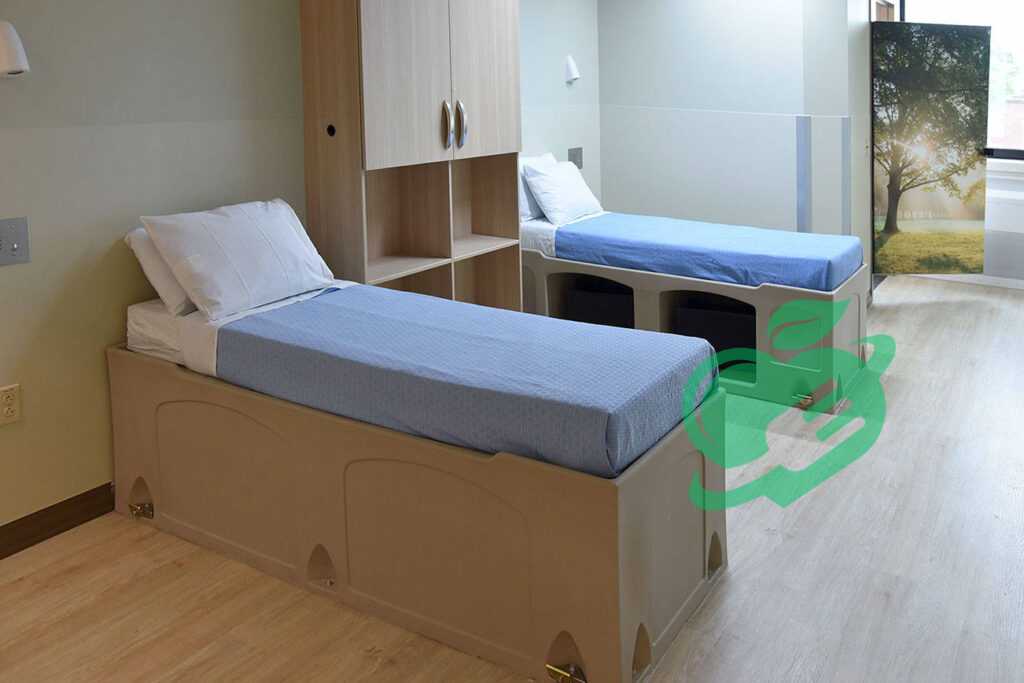
Types of Mental Health Hospitals
Inpatient mental health hospitals are crucial for individuals requiring comprehensive round-the-clock care due to severe mental health conditions. These facilities provide a structured environment where patients can focus solely on their recovery without the distractions of daily life. Consider a situation where a woman named Sarah battles depression and struggles with suicidal thoughts. Inpatient care allows her to be closely monitored by healthcare professionals while undergoing intensive therapy, medication adjustments, and rehabilitation. Here are some key features of inpatient mental health hospitals:
- 24/7 Care: Patients have access to round-the-clock medical staff who are trained to manage crises and stabilize mental health conditions.
- Therapeutic Environment: Structured routines and group therapies foster a sense of community and support, which is essential for healing.
- Multidisciplinary Approach: Care teams typically include psychiatrists, psychologists, nurses, social workers, and occupational therapists, working collaboratively to provide holistic care.
Inpatient facilities address acute and complex mental health needs, making them vital components of the mental health care system.
Outpatient Mental Health Hospitals
On the other hand, outpatient mental health hospitals are designed for individuals who do not require full-time supervision but still need professional support and treatment. These facilities typically offer flexible scheduling, allowing patients to attend therapy sessions and receive care while managing their daily responsibilities. Take the example of John, a college student managing his anxiety and depression. He finds an outpatient program that provides weekly therapy sessions and group support, helping him balance school life and his mental health needs. The features of outpatient mental health hospitals include:
- Flexible Appointments: Patients can attend scheduled sessions that fit their lifestyle, making it easier to receive care alongside work or school commitments.
- Community Resources: Outpatient facilities often connect patients with community support groups, encouraging social interaction and additional healing.
- Continuity of Care: Transitioning from inpatient to outpatient care helps maintain progress and ensures ongoing support as patients reintegrate into their environments.
Both inpatient and outpatient mental health hospitals play vital roles in addressing various levels of mental health needs, reinforcing the importance of specialized care in promoting overall well-being.

Services Provided in Mental Health Hospitals
One of the first steps in any mental health hospital is the assessment and diagnosis process. This is crucial as it helps clinicians understand the patient’s unique needs and develop an effective treatment plan. When someone arrives at a mental health hospital, they often undergo a comprehensive evaluation by trained professionals. Imagine a young man named Alex who admits himself after experiencing overwhelming anxiety. In the hospital, he participates in various assessments, which may include:
- Clinical Interviews: Health professionals ask detailed questions about his mental health history, daily functioning, and current symptoms.
- Psychological Testing: Standardized tests and questionnaires may be used to evaluate Alex’s mood, anxiety levels, and thought processes, providing a clearer picture of his mental health status.
- Physical Examinations: Physical health is closely linked to mental well-being, so medical evaluations ensure that any underlying health issues are addressed.
The outcome of these assessments forms the basis for his personalized treatment plan, fostering a comprehensive understanding of his situation.
Treatment Options Available
Once assessment and diagnosis are complete, mental health hospitals offer a range of treatment options tailored to meet patients’ needs. Treatment may vary based on individual conditions and may include:
- Psychotherapy: Also known as talk therapy, this can involve individual sessions, group therapy, or family therapy to address emotional and psychological issues. For example, Alex may find supportive therapy sessions helpful in expressing his feelings and developing coping strategies.
- Medication Management: Psychiatrists may prescribe medications to help manage symptoms of mental illnesses, such as antidepressants or anti-anxiety medications. Regular follow-ups ensure that medication efficacy and side effects are closely monitored.
- Cognitive Behavioral Therapy (CBT): This evidence-based therapy focuses on changing negative thought patterns and behaviors, allowing patients to develop healthier approaches to life’s challenges.
- Rehabilitation Programs: Many facilities offer specialized programs focused on life skills, vocational training, and social integration strategies to help patients transition back into their daily lives.
In summary, mental health hospitals are dedicated to providing thorough assessments and a range of impactful treatment options, ensuring that patients like Alex receive the best care tailored to their specific needs.
Read also: Promoting Mental Well-being in the Nursing Field.
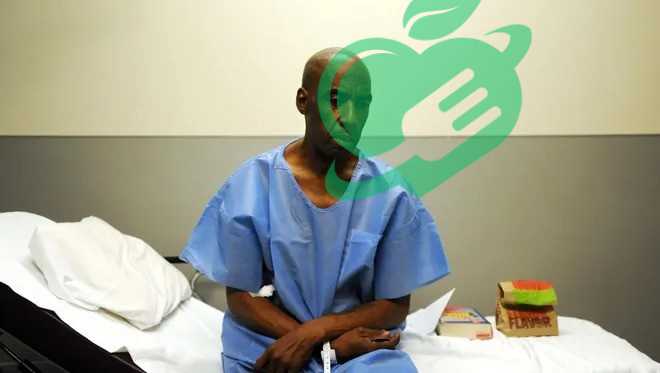
Mental Health Hospital Staff
The heart of any mental health hospital lies within its dedicated staff, particularly psychiatrists and psychologists. Both professionals play crucial roles in providing comprehensive care and support for patients.
Psychiatrists are medical doctors specializing in diagnosing and treating mental health disorders. They have the authority to prescribe medications and often conduct initial assessments upon a patient’s arrival. For example, when Sarah entered the hospital for treatment, her psychiatrist evaluated her history and symptoms.
They prescribed medication that helped stabilize her mood while she engaged in therapy. Psychologists, on the other hand, focus on providing therapy and counseling. They use various techniques to help patients understand their feelings and behaviors. During her stay, Sarah benefited from regular sessions with a psychologist who utilized cognitive behavioral therapy (CBT).
This one-on-one approach allowed Sarah to explore the roots of her anxiety effectively. Together, psychiatrists and psychologists work closely, ensuring that each patient receives a tailored approach that encompasses both medication management and therapeutic support.
Nurses and Support Staff
In addition to the doctors, nurses, and support staff are essential components of the mental health team. They are often the first point of contact and can significantly impact a patient’s experience in the hospital. Nurses trained in psychiatric care are poised to provide compassionate support.
They monitor patients’ health, administer medications, and lead therapeutic group activities. For instance, you might find a nurse facilitating a mindfulness session, helping patients practice relaxation techniques that promote mental well-being. Support staff, including social workers who assist in various operational tasks, play a significant role in creating a healing environment. They help with patient intake, conduct therapy groups, and develop discharge plans to ensure a smooth transition back to everyday life.
In conclusion, the collective efforts of psychiatrists, psychologists, nurses, and support staff form a comprehensive support network that addresses the multifaceted needs of mental health patients. Their collaboration fosters an environment conducive to healing, helping individuals reclaim their mental health and well-being.
Read also: From Theory to Reality: Exploring the Feasibility of Blood Tests for Anxiety Disorders.
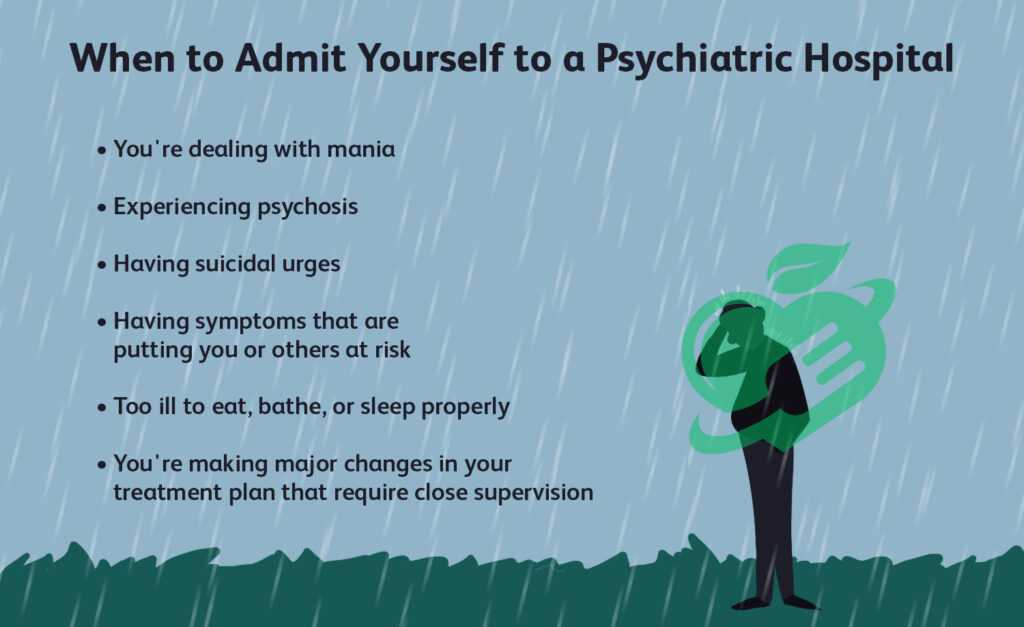
Admission Process to Mental Health Hospitals
The admission process to mental health hospitals can feel daunting, but it is designed to ensure that individuals receive the appropriate level of care for their specific needs. The evaluation criteria for admission typically focus on a variety of factors that assess the severity of the individual’s mental health condition. When someone like Emily arrives at a mental health hospital, the evaluation begins with an assessment of her clinical history along with her current mental state. Key criteria include:
- Severity of Symptoms: Are the symptoms affecting her daily functioning? For Emily, her severe depression has impacted her ability to work and maintain relationships.
- Risk Factors: Are there any indications of self-harm or harm to others? Assessing potential risks is crucial in determining the urgency and type of care needed.
- Previous Treatment History: Understanding what treatments Emily has tried previously can offer insights into what may or may not work moving forward.
- Support System: Evaluating the individual’s existing support, such as family involvement or community resources, helps establish a safety net for ongoing care.
These evaluation criteria ensure that patients like Emily receive a thorough analysis to determine the most appropriate treatment plan.
Read also: Are You Neurotypical? Signs to Look For
Legal Procedures Involved
Once the need for admission is established, it’s important to navigate the legal procedures involved in the process. These procedures are crucial for protecting the rights of patients while ensuring they get the care they need.
- Consent for Admission: In many cases, patients must provide voluntary consent for their treatment. In situations where a patient may not be able to make decisions for themselves, involuntary admission may be necessary, typically requiring a legal process that includes:
- Professional Evaluations: A mental health professional must evaluate the individual to ensure that the criteria for involuntary treatment are met.
- Legal Hearing: In cases of involuntary admission, there may be a hearing to determine the necessity of treatment without the patient’s consent.
- Insurance Verification: Ensure that relevant health insurance information is processed, which may involve discussions about financial aspects and potential coverage for treatment.
These legal procedures exist to ensure that the rights of patients are respected while facilitating their access to life-changing care. Understanding both the evaluation criteria and the legal framework can alleviate some concerns and clarify the journey toward recovery.
Read also: Understanding the Importance of Mental Health First Aid.
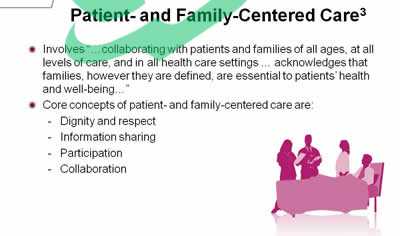
The Importance of Family and Caregiver Involvement in a Mental Health Hospital
Family and caregiver involvement is a cornerstone of effective mental health treatment. Mental health hospitals recognize the tremendous role that families can play in supporting their loved ones through recovery. One of the ways they facilitate this is through family support programs. These programs are designed to educate family members about mental health conditions, treatment processes, and coping strategies. For instance, when Sarah was in treatment, her hospital offered a weekly family support session that focused on the following aspects:
- Understanding Mental Illness: Families learn about specific conditions affecting their loved ones, enabling them to empathize and provide appropriate support.
- Effective Communication: Training teaches families how to communicate with their loved ones constructively and sensitively, which can significantly reduce misunderstandings.
- Coping Strategies: Family members discover tools to manage their stress and emotions while supporting their loved ones through treatment.
- Encouraging Involvement: The program promotes an environment where families feel empowered to participate in therapy sessions, creating a safety net of support both inside and outside the hospital.
These support programs strengthen family bonds and enhance the overall healing process for patients.
Caregiver Education and Training
In addition to family support programs, caregiver education, and training are also vital for fostering recovery. Caregivers often face unique challenges when supporting individuals with mental health conditions, and providing them with proper training can greatly ease their journey. Caregiver training programs typically include:
- Mental Health Awareness: Caregivers learn to observe symptoms, manage crises, and recognize warning signs of deterioration or distress.
- Self-Care Techniques: Caregivers must prioritize their well-being. Training often includes stress management, mindfulness, and coping strategies so caregivers remain resilient.
- Community Resources: Educating caregivers about available resources, such as support groups and health services, can alleviate feelings of isolation and provide additional avenues of support.
Incorporating family members and caregivers in the recovery process not only helps the patient but also creates a robust network of support that encourages long-term mental wellness. The synergy between family members and caregivers, working alongside mental health professionals, plays a significant role in successful treatment outcomes.
Read also: Life After Open Heart Surgery: Tips for a Smooth Recovery.
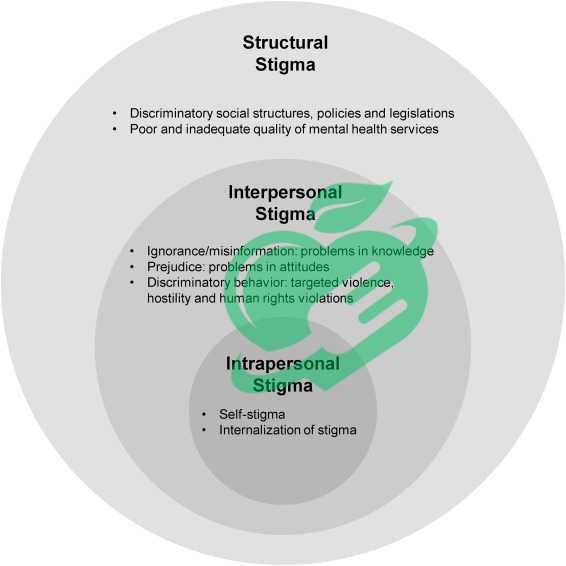
Challenges and Stigmas Associated with Mental Health Hospitals
Despite the invaluable services provided by mental health hospitals, misconceptions about these facilities remain widespread. Many people harbor outdated or inaccurate beliefs that can deter individuals from seeking help. For example, there’s a common notion that mental health hospitals are places where individuals are confined against their will and treated like prisoners rather than patients. In reality, most mental health hospitals prioritize treatment, rehabilitation, and recovery. They strive to create an environment where individuals can safely explore their thoughts and feelings. Consider Emily’s experience: when she admitted herself for severe anxiety, she initially feared being stuck in a hospital room. However, she discovered a welcoming atmosphere filled with supportive therapy groups and engaging activities. To address these misconceptions, mental health facilities often:
- Educate the Public: Outreach programs that provide accurate information about what happens in mental health hospitals can demystify the process and empower individuals to seek help.
- Share Success Stories: Highlighting personal recovery journeys can humanize the experience and showcase the transformative power of treatment.
- Promote Open Discussions: Encouraging open dialogue around mental health can help break down barriers and foster understanding within the community.
Overcoming Stigma Against Mental Health Treatment
The stigma surrounding mental health treatment can be a formidable barrier for individuals contemplating seeking help. Many fear judgment, discrimination, or being seen as “weak” for seeking treatment, which ultimately discourages them from addressing their mental health needs. To combat this stigma, several strategies can be employed:
- Normalize Mental Health Conversations: Just as individuals discuss physical health, making mental health a common topic can help eliminate the taboo.
- Advocate for Policy Change: Supporting mental health initiatives that promote equality and access to care can reduce stigma at a systemic level.
- Engage Influencers: When public figures speak about their mental health struggles, it can validate others’ experiences and encourage them to seek help without fear.
Embracing these approaches not only aids individuals in understanding the importance of mental health treatment but also fosters a more inclusive society where seeking help is seen as a courageous step toward wellness. By addressing misconceptions and overcoming stigma, society can pave the way for a future where mental health is prioritized and normalized.
Read also: Mental Health in Nursing: Challenges and Solutions

Future Trends in Mental Health Hospitals
As we look toward the future, mental health hospitals are increasingly harnessing the power of technology to enhance patient care and improve treatment outcomes. Technological advancements are revolutionizing how mental health services are delivered, making care more accessible and personalized. For instance:
- Teletherapy: The rise of telehealth has transformed how patients connect with therapists. Virtual sessions enable individuals like John, who live in remote areas, to access quality care without the burden of travel. This convenience also accommodates varying schedules, making therapy more accessible for those balancing work and family commitments.
- Mobile Apps for Mental Health: Many hospitals are recommending mindfulness and mood-tracking apps, empowering patients to take an active role in managing their mental health. By logging emotions or stressors, patients gain insights that can be crucial during therapy sessions.
- Artificial Intelligence: AI tools are being developed to assess mental health needs and offer tailored resources. Imagine a chatbot that can guide patients during times of crisis, providing instant support while connecting them to human professionals when necessary.
These technological innovations not only enhance patient engagement but also reduce the stigma associated with seeking help.
Focus on Holistic Wellness Approaches
In tandem with technological advancements, there is a growing shift towards holistic wellness approaches in mental health care. This paradigm recognizes that mental health is intertwined with physical, emotional, and social well-being. Mental health hospitals are adopting holistic practices such as:
- Integrative Therapies: Many facilities now offer yoga, meditation, and art therapy as part of their treatment plans. For example, during her stay, Emily found solace in a meditation workshop that complemented her therapy sessions, greatly improving her overall well-being.
- Nutrition and Fitness: Recognizing the connection between diet, exercise, and mental health, more hospitals are incorporating nutrition education and fitness programs into their offerings. This encourages patients to adopt healthier lifestyles that support both mental and physical health.
- Mind-Body Connection: Programs that emphasize the mind-body connection are increasingly integrated into treatment plans, helping patients become more aware of their stress triggers and learn effective coping mechanisms.
What is called a mental hospital?
A psychiatric hospital, often referred to as a mental health hospital, behavioral health hospital, or asylum, is a specialized medical institution dedicated to the treatment of serious mental illnesses. 1
What is the most famous mental health hospital?
New York-Presbyterian Hospital affiliated with Columbia and Cornell.- Johns Hopkins Hospital.
- UCLA’s Resnick Neuropsychiatric Hospital.
- Yale New Haven Hospital. …
- UCSF Health-UCSF Medical Center.
- UPMC Western Psychiatric Hospital.
- NYU Langone Hospitals. New York, NY 10016-6402.
- Stanford Health Care-Stanford Hospital. Stanford, CA 94305. 2
What is the meaning of mental health facilities?
Mental health facility means A facility, either public or private, that is designed to provide treatment for mental health issues.. 3
Because your health is the most valuable thing you have and the most precious thing we care about, we always recommend that you consult your specialist doctor in everything related to your health and daily life. Everything we provide here is for awareness purposes only and does not replace consulting a doctor. Every person has a unique condition that deserves special care, and we are here by your side, working passionately to provide the information you need. Always follow us, because we write for you with love and sincerity to remain a source that inspires you with hope and supports you on your journey towards a better life.
- Wikipedia ((↩))
- health.usnews ((↩))
- lawinsider ((↩))




Thanks for sharing. I read many of your blog posts, cool, your blog is very good.